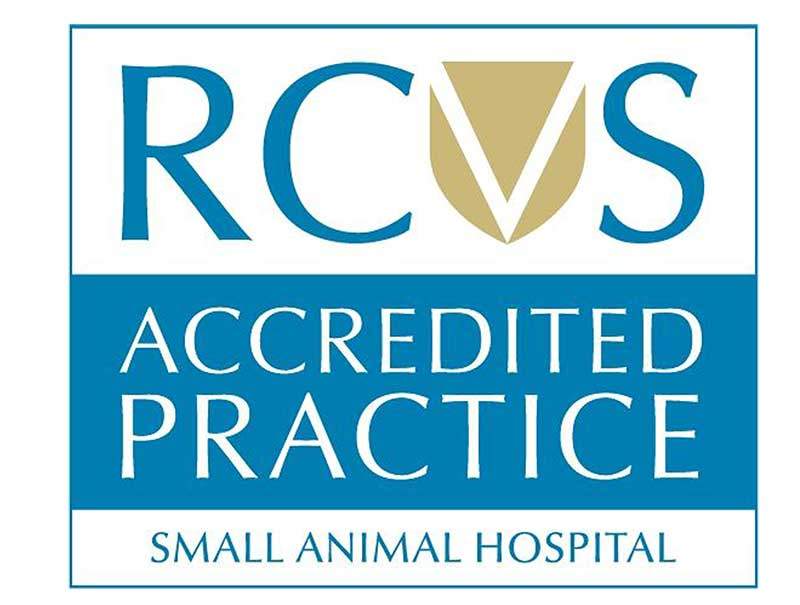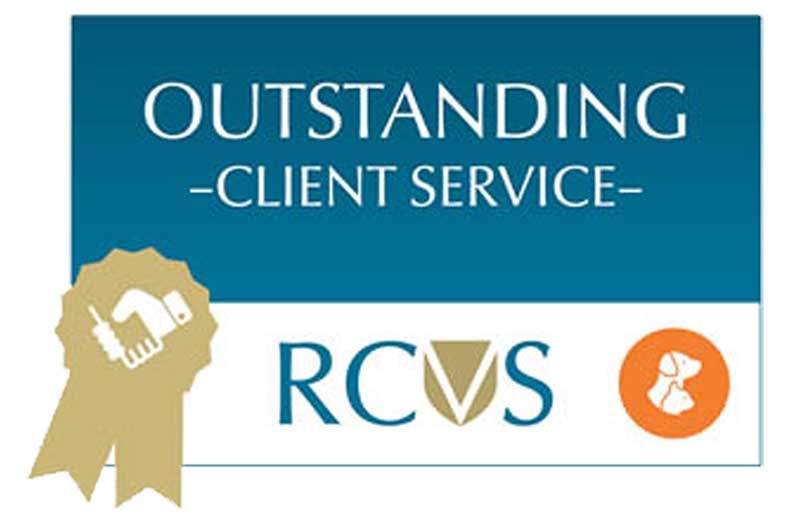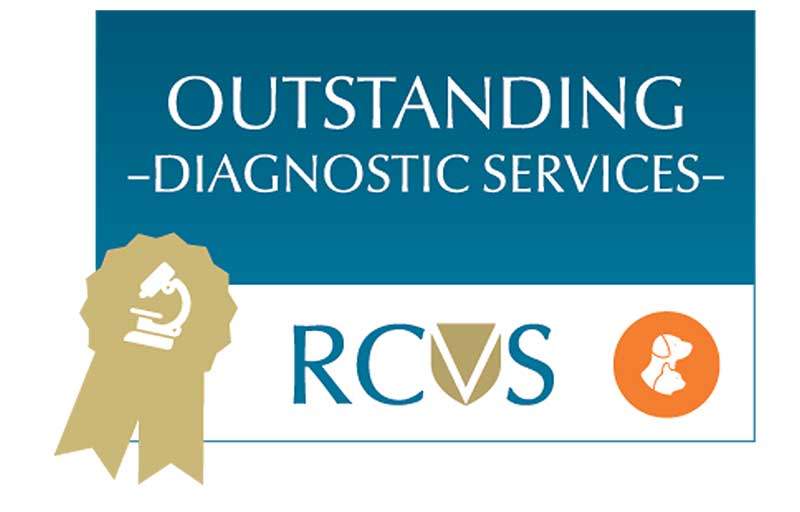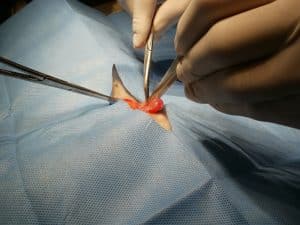Hernias are fairly common in dogs, though uncommon in cats, but can be easily treated through simple hernia surgery, with excellent success rates. Whilst the majority of hernias are congenital, meaning that the animal is born with them, some occur as a result of an accident or injury. At Northwest Referrals we regularly carry out hernia surgery on dogs and cats, resolving the problem and improving their quality of life. It is important that hernias are treated, as they will, in general, not go away by themselves.
Overview
There are five main types of hernias, and they vary in severity often due to where they are located. Sometimes hernias can be visible to the naked eye, but other times they are internal and identified only by the symptoms that the animal will be exhibiting. An umbilical hernia will be near your puppy’s belly button, while these types of hernias can sometimes heal by themselves, it is best to discuss the options with your vet. An inguinal hernia occurs in the folds of skin where the hind leg meets the belly. These can be complicated as they can trap sections of the bladder or the uterus causing ongoing health issues for your dog. A diaphragmatic hernia occurs when there is a hole in the diaphragm that allows the organs in the abdomen to move into the chest cavity. A perineal hernia can happen when there is a tear in the pelvic muscles. The hiatal hernia is another issue with the diaphragm, in these cases, the hole is quite large and the stomach moves through the diaphragm.
Causes of Hernia
The different types of hernias have different causes. The common congenital hernias are the umbilical hernia and the diaphragmatic hernia, and certain breeds are more prone to these genetic abnormalities. Responsible breeders should not be breeding from dogs that have congenital hernias as this will cause the condition to be passed onto their offspring. Inguinal hernias are most common in middle-aged, pregnant dogs, whilst perineal hernias are most common in male dogs. Hiatal hernias are generally caused by trauma, though are more prevalent in brachycephalic breeds.
Symptoms
Some hernias are visible and easy to spot. Where there is no obvious sign of a hernia, it is important to look for common symptoms of hernias. These include vomiting and loss of appetite, as well as signs such as leg weakness, lethargy, or cramping. Responsible pet owners will know their pets and be able to identify changes from the normal. If these present after an accident or incident, the cause of the change will be clear, whereas in young animals it may be harder to pinpoint a change from the normal, but ongoing symptoms are a good indicator of an underlying issue.
Diagnosis
If the hernia is not visible, a vet will diagnose a dog or cat first through the presenting symptoms, and a thorough examination. They will feel for any swelling, hardness, or changes. This examination will then be followed up by medical imaging, to be able to pinpoint the exact area and issue that your pet is experiencing. X-rays or ultrasounds are used to look for any abnormalities, which are both non-invasive and painless procedures.
Treatment
The best treatment for a hernia in a dog is surgery. Some hernias can be treated via medication, but in general, it is best to opt for surgery to resolve the health issues caused by the hernia. The success rate for hernia surgery is high, and it will provide the pet with an improved quality of life. As a hernia will not normally go away by itself, it is important to take a proactive approach to the treatment of the hernia.
What is Hernia Surgery in Dogs and Cats?
Hernia surgery involves open surgery to repair the damage from the hernia and prevent it from recurring. The surgery will vary slightly depending on the location of the hernia and the size and severity of the hernia. However, here at Northwest Referrals our experienced team of vet surgeons have carried out many hernia operations, and have seen many presentations of hernias. We are experienced and knowledgeable and will always carry out hernia surgery to the very highest standard.
Importance of Surgery as An Option
Surgery is the best option to treat a hernia. Hernia surgery is relatively straightforward and has a high success rate. Hernia surgery can instantly improve a dog’s or cat’s quality of life, after the initial recovery period. Dogs that are born with hernias will suffer from the effects throughout their lives, without surgery to correct the hernia. Our duty of care to our pets is to ensure that they are healthy and happy, and understanding the best options for treatment is part of this duty.
Preparation for the Surgery
All surgery carries a risk. Ensuring that your dog or cat is as healthy as it can be before its operation is important. One of the best things that you can do to prepare your dog or cat for its operation is to ensure that they are a healthy weight. Being overweight increases the risk from surgery. If you are struggling to keep your dog or cat to a healthy weight, then please speak to your vet, who will advise on the best course of action.
Recovery from the Surgery
Whilst a hernia operation is relatively straightforward it is still major surgery. To optimise the chances of success and to reduce any post-surgery complications your pet must be kept quiet for the first two weeks after the operation. This will give the wound and the internal organs a good chance to heal. This will involve keeping your dog on a lead, reducing jumping and climbing, and generally keeping your pet as calm as possible. If you are concerned about keeping your pet quiet during this period, please speak to your vet as they will be able to advise on the best way to keep your pet calm.
Cost of Hernia Surgery
Here at Northwest Referrals, we aim to provide excellent soft tissue surgery for an affordable price. Whether you are a vet referring to a dog, or a pet owner looking for an operation for your cat, we are here to help you. Our first priority is always the health and well-being of the animals that we treat. We can give you a quick quote on the cost of a hernia operation, simply use our surgery referral form for a fixed price quote.
Next Step
We are here to help both vet practices who wish to refer clients for hernia surgery or a pet owner who is looking for treatment for their pet. We treat both insured and uninsured dogs and cats here at our state-of-the-art treatment centre. If you would like to discuss your pet in more detail, or just need advice about the best options for you, then our helpful and friendly team is always on hand to answer any questions that you may have. You can call us on 01942 242001 or drop us an email to info@northwestreferrals.co.uk, and we will be able to help you with your enquiry.





